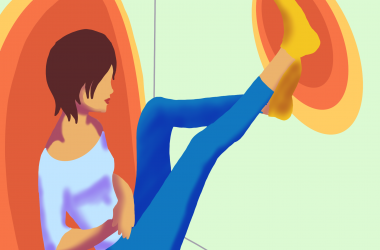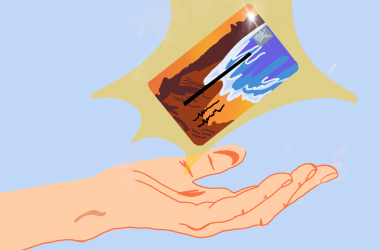On Sunday, Feb. 28, I decided to go to my first university sports event. It was Senior Night for our women’s basketball team, and I decided to both honor them and, of course, have some relaxing fun.
In a time when the university is trying its best to increase game attendance, never did I think that being disabled would get in the way, especially in an arena located at a state university.
What I ended up getting from that evening, however, was a horrible experience in probably the worst arena I’ve ever been to when it comes to accessibility and organization of wheelchair access. And I’ve been to plenty of those.
To start off, the elevator that grants access to the seats is located inside the same area where the coach and administrator offices are located. While everyone comes in through the front door, I was guided deep inside the corridors to reach the elevator.
As I was escorted to the elevator, I asked the person showing me the route to which floor I should go. He wasn’t sure, and had to go ask someone. A few minutes later, he returned, telling me to go to the second floor.
The second floor, as it turns out, is all the way at the top of the seats — behind them, actually.
But this wasn’t the end of it.
Once on the second floor, I inquired exactly where to go, since, after going around the whole floor once, I couldn’t locate any areas marked as “disabled seating.” Once more, it took three staff members to radio each other in order to figure it out, since no one seemed to really know.
As polite and nice as the staff was that night, they were extremely ill advised when it came to an unusual question, such as the one I posed: “Where do I sit?”
I began to realize that the facility doesn’t have any seats for wheelchairs. None. Not on the second floor, first floor or court level. At least that’s what I was told that night.
In the end, I was pretty much told to find a hole somewhere, either right in front or right behind the railings that mark the end of the seats. I was actually advised to be in front of the railing — an aisle accessible only by entering through the very top of the stairs. I declined after noticing how narrow and dangerous it would be.
I ended up taking a spot behind the railing, all the way on the top, blocking a bit of the corridor behind me, as it was the only place to stay.
Coincidentally, an older lady arrived later with another scooter. While part of her family sat on the chairs a few rows in front of her, others scouted the arena for folding chairs so they could sit next to her, instead of just leaving her behind. For a family evening, her family was quite divided.
At the Pyramid, there are two sections of seating — the regular seats with the golden chairs, and the “premium” seats with the black chairs. Disabled persons, apparently, don’t have a choice of either.
Even more interesting to think about is that the Pyramid was built in 1994 — four years after Title III of the Americans with Disabilities Act pronounced that it was against the law for a public place to offer individuals with disabilities “accommodation that is different or separate from that provided to other individuals.”
A hole somewhere, in my opinion, is both different and separated, as the family sitting next to me, half split between the section in front and the section behind the railing, clearly epitomized this situation.
Finally, does it really make sense to put someone who can’t really stand up often — or at all in many cases — behind everyone else during a game, where many people have a tendency to stand up during key moments? Plenty of times I had absolutely no view of the court because people were excited, cheering and, of course, standing up.
I don’t blame the people standing up, not at all. I’m proud to see fans and family members of all ages supporting our athletes.
I blame the place.
If at first I was annoyed, I’m now sorry. Sorry that, at a time when our university is trying to motivate more people to attend games, it doesn’t seem to be providing the support it should to make it a wholesome and fun event.
This should’ve been an evening where, win or lose, everyone has a great time. It could’ve been but, due to the disorganization, it wasn’t.
Danny Paskin is a CSULB journalism professor.



